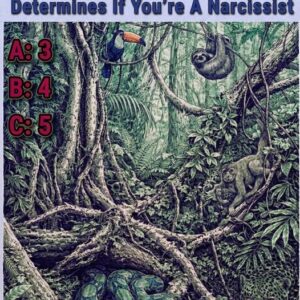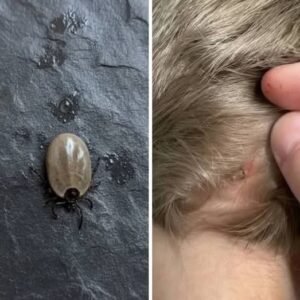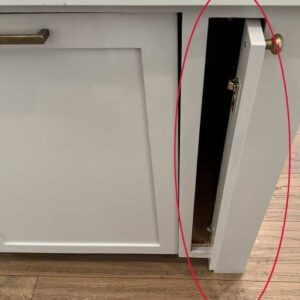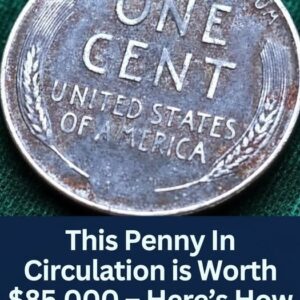I never imagined I would outlive my own child, never imagined I would stand upright while my boy was lowered into the ground. It goes against the order of things in a way your bones recognize before your mind does.
My son, Richard, was thirty-eight. I was sixty-two. The April sky over Green-Wood Cemetery had that heavy, metallic color it gets before the clouds open, and a fine rain threaded down through the old oaks, slicking the wings of marble angels until it looked as if they were crying with us.
Sounds came to me as if from another neighborhood: the thud of wet dirt on wood, a distant roll of thunder over the harbor, the half-choked little noises people make when they don’t know what to do with their grief or their hands.
Everything around me blurred until all I could really see was the polished mahogany, the raw slice of earth, and people saying my name too gently, as if softness could cushion the blow.
Across the grave stood my daughter-in-law, Amanda. Every hair in its place, eyeliner that refused to smudge, shoulders pulled back like she was about to step on stage. They had been married three years, and in that short time she had become the sun everyone else in the room had to orbit. Her black Chanel dress looked more suited to a charity gala than to the edge of a grave. She received condolences with a gracious tilt of her head, pressing manicured fingers to people’s arms, saying all the right words in the exact right tone. When our eyes met, she arranged her mouth into a sympathetic smile that never made it as far as her eyes.
“Mrs. Thompson?” A man in a gray suit waited until the last handful of soil slid down and settled. “I’m Jeffrey Palmer. Palmer, Woodson & Hayes. Your son’s attorney. The reading of the will is in one hour, at the penthouse. Your presence is specifically requested.”

“At the house?” The words felt thick in my mouth, as if they belonged to the rain instead of me. “That’s… very soon.”
“Amanda—Mrs. Conrad-Thompson—felt it was best not to delay,” he said, correcting himself with the quickness of a man who already knew whose name paid the bills now.
Of course she did. Amanda loved drama almost as much as she loved being the one who set the scene. Richard had convinced himself he was happy with her, and after cancer took his father five years earlier, I learned not to disturb happiness when it finally showed up, even if it came wrapped in red flags. But there had always been a little calculation in her gaze, a quiet column of numbers hiding under the shimmer.
The Will That Cut Me Out And Opened A Door
The Fifth Avenue penthouse looked out over Central Park like a glass ship anchored above the trees. Richard had bought it before he met her; she had remade it after. The old comfortable couches I used to sink into were gone, replaced by sharp angles and furniture that looked like it punished the idea of lounging. The bookshelves that once lined the walls had disappeared, replaced by art that knew its own value. The place was full of people—fashion friends, board members from his tech company, glossy strangers who seemed to float from one white surface to another as if this were a brand launch instead of what it actually was.
“Eleanor, darling.” Amanda glided toward me, perfume first, and offered an air-kiss that landed safely near my cheek but never on it. “I’m so glad you could make it.”
“No wine,” I said when someone moved toward me with a tray. “Thank you.”
She had already turned away, one hand falling onto the knee of a tall man in a trim Italian suit. “Julian, I can’t believe you came,” she said, her fingers resting there too familiarly. I recognized him from financial news segments—Julian Beck, Richard’s business partner at Thompson Technologies. I found a corner near the windows and clung to what remained of my composure.
Palmer stepped in front of the marble fireplace, legal folder in hand. The hum of conversation dropped the instant he spoke. Expensive rooms have a way of teaching people when to be quiet.
“This is the last will and testament of Richard Thomas Thompson,” he announced, “executed and notarized four months ago.”
Four months. My son updated his estate plan every August on his birthday, like clockwork. Something about New Year’s had made him change the routine. My stomach tightened.
“To my wife, Amanda Conrad-Thompson,” Palmer read, “I leave our primary residence at 721 Fifth Avenue, including all furnishings and art contained therein. I also leave to Amanda my controlling shares in Thompson Technologies, my yacht—Eleanor’s Dream—and our vacation properties in the Hamptons and Aspen.”
A soft intake of breath moved around the room like a gust of wind through high grass. It was almost everything. Thompson Technologies wasn’t just a company; it was Richard’s name in code, then in contracts, then scrolling across stock tickers. Those shares were power, legacy, a kingdom in zeros and ones.
“To my mother, Eleanor Thompson…” Palmer continued, and I straightened, bracing myself for whatever small corner of our life together he had set aside for me—the cedar-shingled Cape Cod house where we watched meteor showers; the first editions we hunted in dusty shops; the vintage MG his father kept running with tenderness and wire. “…I leave the enclosed item, to be delivered immediately following the reading.”
Palmer reached into his folder and brought out a single crumpled envelope. It sat in his palm as if it weighed much more than paper.
“That’s it?” Amanda let the words ring out just a hair too loud. “The old lady gets an envelope? Richard, you sly dog.” Her laugh broke first, bright and sharp, and others joined in, people who were afraid not to. A couple of Richard’s newer colleagues chuckled, and Julian’s lips twitched as he watched, her hand still resting on his knee.
Palmer approached me, looking as if he wished he were anywhere else. “Mrs. Thompson, I—”
“It’s fine,” I interrupted, summoning the brittle politeness women learn to weaponize when cruelty is dressed up in manners. I opened the envelope because refusing would have been its own kind of spectacle.
A single airline ticket slid into my hand. First-class to Lyon, France. A connecting train to some small Alpine village I’d never heard of—Saint-Michel-de-Maurienne. Departure date: the very next morning.
“A little European vacation?” Amanda sang. “How thoughtful. Time to yourself. Far, far away.” The laughter that followed had the sound of glass breaking in another room while you sit helpless at the table.
“If there’s nothing else,” I said, folding the ticket with careful fingers, trying not to let them shake.
Palmer cleared his throat. “There is one stipulation. Should you decline to use this ticket, Mrs. Thompson, any potential future considerations will be nullified.”
“Future considerations?” Amanda’s perfectly drawn brows knit together for a heartbeat, then smoothed again. “What does that even mean?”
“I’m not at liberty to explain,” Palmer said, twisting his wedding band with his thumb, looking like a man who did not enjoy the game he was made to officiate.

“It hardly matters,” Amanda said, her smile sharpening enough to cut. “Everything of value is already spoken for. Please—everyone—stay, have a drink, and celebrate Richard’s life.”
The party resumed. Glasses clinked; business cards changed hands; laughter rose from the kitchen. I rode the elevator down, alone with the hum of the cables and the echo of my own heartbeat. Back at my small Upper West Side apartment, where Richard’s height was still penciled on the kitchen doorframe and the curtains smelled faintly of old paper and coffee, I set the ticket on the table and watched the afternoon slide down the brick building across the alley.
I could have called my own lawyer, could have railed against the humiliation of being handed what looked like a consolation prize in front of a room full of strangers. But under the bruise and the insult, there was something else, a quiet signal only one person in the world could send. Trust me, Mom. One more time. Against every sensible instinct I had, I listened.
The Plane Ticket That Rewrote My Past
By dawn, I had decided. I packed a single suitcase. I watered the philodendron and told it to behave for the neighbor. I wrote a note for the building super. Then I ordered a car to JFK, clutching a ticket that felt less like a vacation and more like a dare.
Airports are designed for people who don’t want to sit still with their thoughts. Television screens, duty-free shops, announcements about boarding groups and security checks. Grief doesn’t care. It threads itself through gate numbers and boarding passes, finds you between strangers and plastic seats. On the flight, I drifted in and out of a thin sleep, dreaming of my boy as a toddler, of his first day of school, of the way he hugged me the week before his wedding, whispering that he hoped his father was proud of the man he’d become.
Lyon greeted me with pale sun and the quietly confident grace of a city older than the country I’d flown from. My rusty college French shook itself awake: s’il vous plaît, merci, billet, platform. The regional train climbed toward the Alps, trading graffiti-marked walls for green fields and then for thick forest and stone. Outside my window, the world rose on either side—mountains shouldering up out of the earth, fields stitched into their lower slopes, church steeples poking up like exclamation points. We barreled through tunnels that stole the light and then burst out into pockets of blue that felt like relief.
Saint-Michel-de-Maurienne looked exactly like the kind of village American postcards try to imitate: slate roofs, cream-colored houses, a square with café tables scattered like confetti, chalkboard menus offering tarte du jour. A handful of people stepped off the train: a family wrangling ski gear, a young couple with backpacks, and one older man in a driver’s cap, holding a sign in looping script: Madame Eleanor Thompson.
“I’m Eleanor,” I said, stepping closer.
He studied my face with bright blue eyes set in skin that had known decades of sun and wind. Then he smiled and spoke five words in accented English that made the years inside my chest rearrange themselves.
“Pierre has been waiting forever.”
The platform tilted under me. Air left my lungs in a rush. He took a quick step forward, steady as the mountains behind him. “Madame?”
“Pierre…” I said, fighting to get my voice back. “You mean… Pierre Bowmont?”
“Oui,” he replied gently. “Monsieur Bowmont regrets he could not come to the station himself. After your journey—and your loss—he worried it might be too much.”
Too much. The phrase barely scratched the surface. Pierre Bowmont had been the boy I fell wildly in love with the summer I studied abroad in Paris, a lifetime and another body ago. The blue-shuttered apartment near the Boulevard Saint-Germain, the cheap red wine, the street musicians at the corner café that felt like church, the way his hands moved when he talked about the future he wanted—all of it rushed back at once. So did the memory of the roommate who knocked on my door two days before my return flight, eyes solemn, telling me there had been a motorcycle crash, that Pierre had died in the hospital. I had gone home with a broken heart and a secret I never shared, married a good man who agreed to build a life around it, and buried that part of myself under years of PTA meetings and hospital shifts and mortgage payments.
Now I followed this stranger—he introduced himself as Marcel—to a black Mercedes that purred like a cat well-fed on old money. We wound our way up a narrow road lined with fir trees and stone walls, the village falling away below, the peaks rising around us like a protective circle. An iron gate opened ahead, flanked by stone pillars. A discreet brass plaque bore the name: Château Bowmont.
The house itself appeared like something out of a story when we turned the last bend: warm golden stone, tall windows catching the light, turrets that hinted at some long-ago purpose, terraces dripping with flowers even in late spring chill. Below, vineyards combed the hillside in precise green rows, the kind of careful geometry that only comes from generations of hands.
“Château Bowmont,” Marcel said with pride. “Monsieur has restored it with respect. The wines… you will see.”
Before we had even come to a full stop, the front door opened. A man stood there, framed in the doorway—silver hair where I remembered black, lines at the corners of his mouth and eyes, shoulders still straight, eyes still the same intense dark that had once convinced a twenty-year-old girl that love could rewrite geography.
“Eleanor,” he said, my name wrapped in that French music, and for a moment the world narrowed down to the space between us.
“You’re alive,” I managed, because all the important questions in life are embarrassingly simple when you strip them down to their bones.
The next things came in flashes: the foyer with its stone floor and high ceiling; my knees giving out; voices calling my name; the smell of old wood and clean linen. When I truly woke, I was in a study, a blanket tucked carefully over my legs, a fire simmering in a stone hearth. My shoes sat neatly side by side, as if someone believed in order even in the middle of chaos.
“You’re awake.” Pierre sat in a leather chair opposite, hands folded loosely, looking at me as if he were trying to memorize every change the years had made. “Marcel has prepared a room for you. But I thought we should talk first.”
“Richard,” I said, because grief still owned the front of my mind. “Did he… is he…?”
“Your son came to see me six months ago,” Pierre said, his voice quiet and edged with sorrow. “He had done one of those DNA tests—‘for medical reasons,’ he said. The results led to more questions than answers. He hired an investigator. That trail came here.” Pierre held my gaze. “Biologically, he is my son. In every way that matters, he is also Thomas’s. He was very clear about that.”
“He was,” I said, the words catching on the memory of my husband. “Thomas raised him, loved him, taught him how to change a tire and a life. That will never change.”
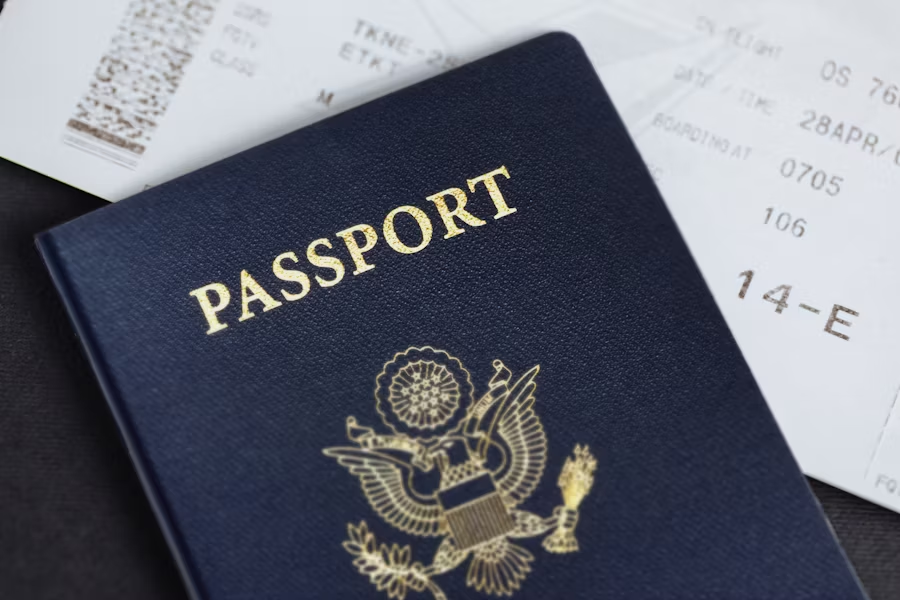
“You knew,” Pierre said gently. There was no accusation in it, just the laying down of a fact between us.
“I knew,” I admitted. “But I thought you were dead. Your roommate, Jean-Luc—do you remember him? He came to my room and told me there’d been a motorcycle accident. That you had died. I went home. I never checked. I was twenty and half-broken and I ran.”
Pierre’s jaw tightened. “There was no accident,” he said, steel threaded through velvet. “I waited at our café for hours when you did not come. At your pension, they told me you had checked out, taken an early flight home. I was shattered. Jean-Luc told me you had left without a word. He was always jealous, but I did not see how far that went. He lied to you and to me. He wanted to punish us both.”
Forty years of my life rearranged themselves like furniture you think you know well until you walk into it in the dark and realize someone moved it years ago. I had built an entire marriage, an entire motherhood, on a misunderstanding I never thought to question.
“How did Richard find you?” I asked, because there was only so much of the past I could pick up at once.
“He came with a photograph of you,” Pierre said, a small smile touching his mouth. “You looked the same. Different, of course—more grace, more lines. Beautiful with time. And he looked like my father when he was twenty. Once I saw that, I could not unsee it. We talked. We argued. We cried. And then he told me something else.” Pierre’s face hardened. “He told me about Amanda.”
The Secret Will, The Cape House, And The Garden With An X
Richard had discovered what my gut had always whispered to me about Amanda and his slick partner Julian: that their partnership extended far beyond quarterly reports. He had followed money the way his father once followed fishing line—carefully, patiently, with an eye for any unnatural tug. He found shell corporations, quiet transfers of company funds, a plan to slowly push him out as CEO and reduce his power on the board. When that path proved slow and messy, he stumbled on something darker, ugly conversations about “contingency plans” that did not sound like business at all.
“The boat,” I said, my throat tightening. “The accident off the coast of Maine.”
He didn’t answer. He didn’t have to.
“Your son went to the FBI,” Pierre said. “He showed them what he had. They opened an investigation. But he worried he wouldn’t live long enough to see the end of it. So he planned an ugly magic trick. He decided to die before anyone could kill him.”
The words made my skin go cold. “The funeral—”
“Was real in every way that mattered to them,” Pierre said. “The casket, the service, the burial site. They needed to believe they had succeeded so they would let their guard down. A medical examiner, under seal, certified a death no one was allowed to examine too closely. The FBI supervised every step. Richard watched the whole thing from a van a block away, with an agent holding his arm as you walked behind the casket. He has not forgiven himself for that.”
I pressed the heels of my hands to my eyes, trying to imagine my son sitting in some anonymous vehicle as I stood above what I believed was his grave. It was almost too much to carry.
“He changed his will quietly four months ago,” Pierre continued. “The version read today gives Amanda the house, the visible shares, the yacht, the vacation places. It was the performance she expected. It makes her feel secure, which the FBI needed. But there is another will, properly witnessed and notarized, that directs the bulk of his true wealth into a trust administered jointly by you and me. Hidden accounts, investments, property Amanda never knew existed. That will was designed to activate only if you did one very specific thing.”
“Get on that plane,” I whispered.
“Yes,” Pierre said. “If you took the trip, the trust would open. If you refused, Amanda would inherit everything. He called it a character test. He said, ‘If my mother believes there is something more here, she will show up. She always has.’” Pierre placed a leather folder on the desk between us. “The legal documents are here. And there is something else as well.”
He handed me an envelope addressed in Richard’s familiar, slightly leaning handwriting. I opened it with fingers that suddenly felt young and clumsy again.
My dearest Mom,
If you’re reading this, it means two things: first, that you got on a plane to France because you still trust me even when I make it hard, and second, that things with Amanda and Julian went exactly the way the FBI thought they might…
The letter explained everything I had just heard, but in my son’s voice: the DNA kit “for fun,” the shock of a French farmer with his face on a laptop screen, the quiet meetings with federal agents, the careful staging of his own death, the guilt that woke him up at 3 a.m. He apologized for putting me through the cruelty of the cemetery and the spectacle at the penthouse. He told me he couldn’t stand the thought of any of his money—which was time and sweat and a thousand late nights—ending up in the hands of people who had planned to erase him. He needed someone stubborn and honest to stand between them and what they wanted.
If you’re reading this, assume the worst about Amanda and Julian until the FBI tells you otherwise. Trust no one except Pierre and Marcel. The proof you’ll need is in the blue lacquer box you gave me when I turned sixteen, the one you hid my first set of car keys in. I put it where only you would think to look. Remember the treasure map we made when I was twelve? X marks the spot, Mom. It always has.
Love you, always,
Richard
The blue lacquer box. The treasure map. The X.

“The Cape,” I said. “The beach house. The iron bench under the trellis with the X design. We built a hidden drawer under it that summer we read Treasure Island together.”
Pierre nodded. “Amanda owns the deed now, on paper. But paper is only one kind of truth. The FBI believes she and Julian will go there soon, looking for anything valuable. We need to get to that bench first.”
“At my age, I thought my days of sneaking around were over,” I said, and my voice shook, half with fear, half with something that felt unnervingly like adrenaline.
Pierre’s mouth curved. “It appears our son has pulled us into a heist movie.”
He stepped out into the hall, spoke in low French to Marcel, and returned. “There is a jet on standby. One of Richard’s, not tied to the company. We can be on the Cape before dawn.”
“Of course there’s a jet,” I muttered, because sometimes sarcasm is the only thing between you and collapse.
By the time the first light washed over the mountains, we were airborne again, flying back toward a place I had thought was lost and a son I had thought was gone.
The Garden Where Love Came Back To Life
Boston appeared under us in shades of pewter and glass, the harbor a dark plate. We drove south in a black SUV with tinted windows, the world outside turning from city to suburbs to stretches of marsh and scrub pines. Our driver, a man introduced as Roberts, had the solid, unruffled air of someone who had seen a lot and said very little. He briefed us as we drove: the FBI was already on-site near the Cape house, watching. Amanda and Julian had arrived at dawn in a sleek rented SUV. A local handyman, working with the agents, had “discovered” a plumbing problem that required the water to be shut off inside, forcing them to waste time arguing and calling people. It would not hold forever.
“We’ll need a distraction,” Pierre said.
“Already arranged,” Roberts replied. “A furniture delivery company is about to insist that the neighbor signed for three oversized sofas and that the mistake absolutely must be corrected today, loudly, in the driveway next door.”
When we finally pulled onto the narrow road that led to the beach house, my heart did a strange double beat. The ocean flashed between the dunes, gray and white and restless. The cedar-shingled house that had held so many summers stood there, a little older, like me. The hydrangeas along the walk had gone wild in my absence, spilling blue and purple across the path.
We parked the SUV behind a stand of scrub oaks. The commotion started right on schedule next door—voices raised, a truck beeping, a foreman insisting, a neighbor in a bathrobe throwing up his hands. Amanda and Julian stepped out onto the deck of my old house to see what the noise was. Roberts touched his earpiece.
“Now,” he said.
We slipped around the side, taking the old path through the shrubs Richard and I had used whenever he wanted to sneak out to look at the stars. The trellis and iron bench sat in their little square of garden, sheltered from the wind. The trellis was still shaped like an X, just as we had designed it.
I knelt, fingers searching along the concrete base of the bench until they found the tiny rose-shaped depression that looked like decoration to anyone who didn’t know better. I pressed. A soft click responded. A shallow drawer slid out, damp at the edges but intact. Inside lay the blue lacquer box I had given my sixteen-year-old son the day he got his license, the day I had told him, “You can go further now, but you always know how to get home.”
“You found it,” Pierre whispered.
“We need to move,” Roberts said. “They’re heading back inside.”
I stood, the box clutched tight against my chest. We turned toward the path—and walked straight into Amanda.
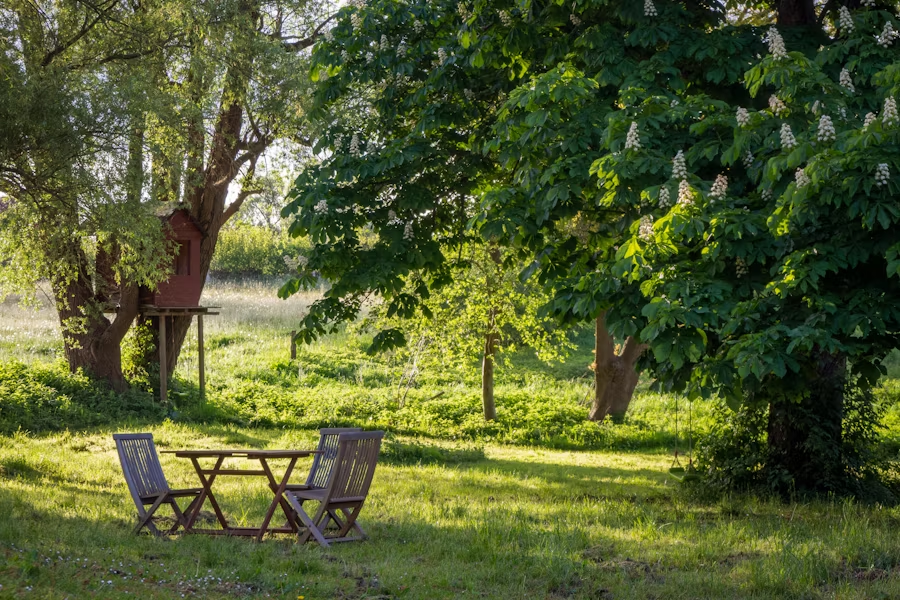
“Well,” she said, stepping through the gate with Julian at her shoulder, “if this isn’t the most brazen trespassing I’ve ever seen.”
She had traded black funeral silk for something more casual and expensive—soft cashmere sweater, designer jeans, boots that probably cost as much as my first car. Her ponytail swung with each breath, her lipstick flawless. “You do realize this is my property now, right, Eleanor? Breaking and entering is a crime.” Her gaze flicked down to the box. “Especially when you’re walking off with… whatever that is.”
“This house was Richard’s,” I said, standing a little straighter. “A place he loved.”
“And now it’s mine,” she snapped. “That’s how wills work. What’s in the box? Any valuables I should have my lawyer add to the list?”
“Personal items,” Pierre said, stepping slightly in front of me, his voice polite but unyielding. “Excluded from the estate.”
She turned her attention to him, eyes narrowing with annoyance and curiosity. “And you are?”
“Pierre Bowmont,” he said, with the kind of old-world courtesy that didn’t need to prove itself. “Richard’s father.”
She blinked, then laughed once. “Impossible. His father is dead.”
“The man who raised me is dead,” came a voice I knew better than my own. “The man whose DNA I share is very much alive.”
Richard stepped into the garden from the path behind her, flanked by two men in plain suits. For a moment, I thought my heart might stop anyway. He looked thinner, his hair a little longer, circles under his eyes, but he was breathing. Breathing and standing and looking at us.
“Richard,” I whispered, the world swimming. He crossed the space between us in three long steps and wrapped his arms around me. I buried my face in his shoulder, half sob, half laugh. “You’re alive.”
“I’m sorry, Mom,” he murmured into my hair. “There was no other way to keep you out of this.”
Amanda’s face went slack, mascaraed lashes blinking too fast. “We saw your body,” she said, her voice high and sharp. “We saw the casket, the grave—this is some kind of stunt.” She turned on the suited man nearest her. “Julian, tell them. Tell them we—”
Julian didn’t get the chance. Roberts had already stepped forward, relieving him of the gun he thought he was reaching for discreetly in his waistband.
“I wouldn’t,” Roberts said mildly. “Federal agents are positioned all around the property. The conversation you’ve been having is being recorded.”
Another man stepped fully into view, flashing credentials. “Amanda Conrad-Thompson, Julian Beck,” he said. “I’m Special Agent Donovan with the FBI. We’ve been investigating you for conspiracy to commit fraud, embezzlement, and conspiracy to commit homicide. You’re under arrest.”
“You faked your death to frame us,” Amanda snarled at Richard as agents moved in, reading rights in a steady voice.
“I documented what you were already doing,” Richard replied quietly. “You framed yourselves.”
It went fast after that. Handcuffs, agents, arguments cut off mid-sentence, a federal sedan waiting at the curb. The garden that had once held a boy’s summer treasure hunt now held the end of a very different kind of game. When the vehicles finally pulled away, taking my former daughter-in-law and her willing accomplice with them, the only sounds left were the wind off the ocean and my own uneven breathing.
Inside, the beach house felt both familiar and foreign. Donovan took over the sunroom as a temporary command center, spreading out files and recording devices on the same coffee table where Richard used to build Lego towers. He played us recordings—Amanda and Julian discussing timing and assets, the mechanic describing how he was supposed to tamper with the yacht’s engine, board members admitting they had seen money move in ways it shouldn’t. It was ugly, but it was also, in a strange way, liberating. There is a grim clarity in knowing the villain was exactly who your bones suspected.
We stayed on the Cape while everything moved through the gears of the justice system. Officially, Richard remained dead to the outside world while the FBI finished their work. Unofficially, my son made coffee in the mornings in the kitchen where he once spilled cereal, took calls from prosecutors in the evenings, and sat with me on the deck as the sun fell into the Atlantic. Some afternoons, Pierre and I walked the shoreline, saying out loud the things we had each carried in silence for decades. Regrets. What-ifs. Small, surprising joys we’d found anyway.
“Donovan showed me the funeral,” Richard said one morning, standing at the stove flipping pancakes like he used to when he was fifteen and determined to “give you a day off, Mom.” “He thought I would need to see what they put you through. I watched you by that grave and thought I might throw up. If there had been any other way…”
“There wasn’t,” I said, because I had already turned that question over in my mind like a stone and found no other side. “If they’d known you were alive, you’d be the one in danger now. You did what you had to do. We both did.”
He nodded, jaw tight. “Pierre kept saying the same thing,” he admitted. “You two are terrifying when you agree.”
Three weeks later, the plea deals were signed. The evidence was too much for their lawyers to spin away. Amanda and Julian each took deals that would send them away for a long time. The FBI scheduled a press conference. The world would find out what had really happened, and my son would come back to life in public.
“Donovan wants me beside him at the podium,” Richard said, pouring coffee, wearing the kind of suit that tells people you know what you’re doing even if they don’t deserve to be reassured. “They’re going to call it an elaborate federal operation to catch corporate criminals. The networks will love it for three days, then move on.”
“And what do you want?” I asked.
“I want my life back,” he said simply. “Or at least whatever version of it still fits.”
He got part of that wish. The press conference made the news cycle spin—charts, graphics, “exclusive interviews,” pundits talking about justice and greed. When the cameras left, there was still a company to rebuild, a board to face, a life to piece together. The board tried to pretend they had always been on his side. Richard arrived at the next meeting with good lawyers and better data. The ones who had looked the other way quietly stepped down. He reworked ethics policies, clawed back bonuses, made himself more enemies and better allies.
When the dust settled, when Richard was officially alive again and Amanda was officially gone, Pierre made an offer.
“Come to France,” he said one evening on the deck, the ocean turning gold. “Not for a vacation. For a season. Six months. A year, if you like. I have a house and a vineyard and too many empty rooms. Richard can run much of the business from there while he rebuilds. You can see where half his face came from. We can… see what life looks like when it isn’t just regret and paperwork.”
Richard looked hopeful and a little afraid, like a kid asking if his friend can sleep over. “Come with us, Mom. We’ll call it a long visit.”
Six months. It sounded both impossibly long and not nearly long enough. “All right,” I said. “But I’m bringing my good walking shoes. I’m told there are vineyards that need inspecting.”
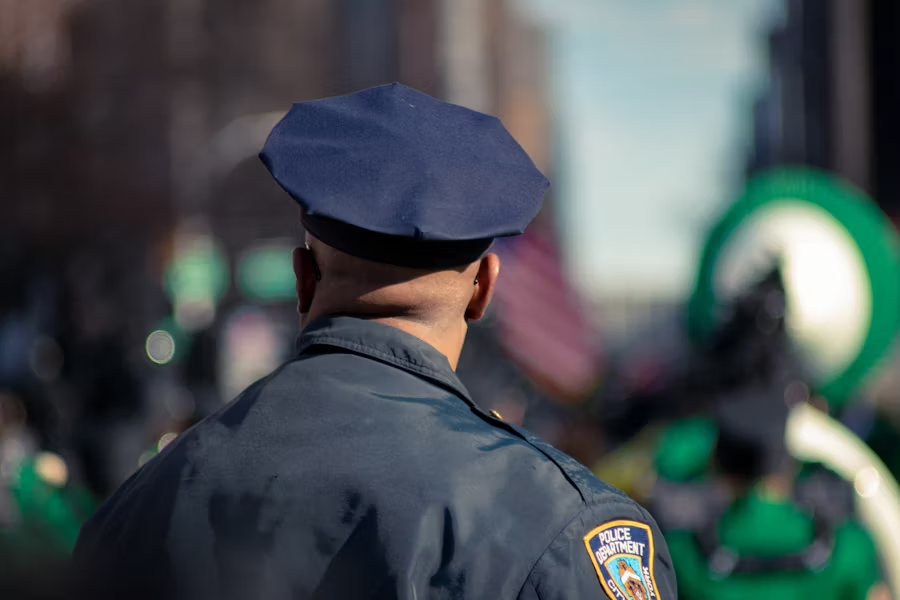
The Life That Was Waiting All Along
The second time I landed in Lyon, I didn’t feel like a woman running away from a will reading. I felt like someone stepping into the middle of a story she thought had ended years ago. Marcel met us at the airport. The drive back to Château Bowmont wore early autumn light—fields browning at the edges, vines heavy with fruit.
We walked the vineyard together that first afternoon. The rows ran straight until the land told them to curve, and then they curved. Pierre talked about soil and sun and the different ways a grape held its sugar depending on the year. Richard listened like the tech founder he was, asking about yield, about process, about how you scale something without losing its soul. I listened like a woman who had lived her whole life in cities and suburbs and suddenly realized she had been missing the background hum of growing things.
Evenings settled into a rhythm. We ate in a small dining room, not the grand one, because large rooms belong to strangers and donors. Pierre opened bottles with dust older than my marriage had been, telling us stories of harvests past, of seasons that nearly broke them and seasons that saved them. Richard told us about product launches and server crashes, about the first time he saw his company’s name on a building. I told them about kids in overcrowded classrooms, about the boy I’d watched fall in love with Steinbeck, about the girl who came to school hungry and left with an application to nursing school in her pocket.
Some nights, after Richard went to bed or took late calls back to New York, Pierre and I stayed at the table, candle burning low. We talked about the years between us, filling in the outlines. He had never married. He had poured himself into the land and the wine and friendships that stitched themselves into a kind of family. I had married Thomas, built a life full of small sacrifices and ordinary joys. We raised a son. We paid for braces and band camps and textbooks. We held each other’s hands in hospital rooms. We lost him. We grew older. We made do.
“I used to think ‘love’ was a word reserved for young people,” Pierre said one night. “Too dangerous for anyone who knows how much it can wreck a life.”
“And now?” I asked.
“Now it feels less like a wildfire and more like a hearth,” he said. “Still hot. But useful. Something you can sit by.”
“I’m not twenty anymore,” I reminded him.
“Neither am I,” he said, smiling. “Which is why I trust it more.”
We moved carefully, two people who had learned the hard way that time is both shorter and longer than you think. Sometimes our hands found each other on a walk between the vines. Sometimes we said goodnight in the hall and went to our separate rooms, feeling a kind of peace that didn’t require perfect symmetry.
Richard, for his part, began to knit together the halves of himself. He worked remote hours with his management team in New York, then spent mornings in the winery, listening to the cellar master talk about fermentation and bottling. He helped Pierre set up a scholarship fund for the children of vineyard workers, kids who wanted to study engineering or music or medicine. He argued with me about baseball over dinner, insisting the Yankees weren’t completely irredeemable, and I argued back like the Red Sox fan I had been since childhood. We picked up the kind of little arguments that mean you trust each other enough to be wrong sometimes.
On the last night of harvest, the courtyard filled with tables and mismatched chairs. Workers, family, friends, and a couple of curious neighbors sat shoulder to shoulder. Someone set speakers in a window and played music that carried the heartbeat of the region. The air smelled of grilled meat, crushed grapes, and that sweet, earthy scent of tired people who know the job is done for now.
When the bottle came to our end of the table, Pierre stood, lifting his glass. “To new beginnings,” he said, in English for my benefit.
“To telling the truth even when it costs you,” Richard added, raising his own.
“To family,” I said, feeling the weight and the lightness of the word in my mouth. “However it finds us.”
The wine tasted like summer saved in a bottle for winter, like a promise that someone intended to keep.
Later, in the study where I had first woken up in France with a blanket over my knees and my life turned inside out, Richard opened his laptop and queued up a video.
“I want you to see this,” he said. “Our first conversation.”
Onscreen, a café in Paris appeared. The Sorbonne in the background, traffic noise edging the audio. Richard sat on one side of the little table, phone propped against a sugar bowl. Pierre sat opposite him, forty years older than when I last saw him under those blue shutters. Their first words stumbled, English and French doing a clumsy dance until they found their rhythm. As I watched, the similarities slapped me one after another—the way they both gestured when they were excited, the way they tilted their heads when they listened, the little half-smile they used when they were being serious but didn’t want to scare anyone.
When the recording ended, we sat in silence for a long moment. There are not words for some feelings. There are only shared breaths.
“You two were always going to find each other,” I said finally. “Whether I got on that plane or not.”
“Maybe,” Richard said. “But I’m glad you did.”
We talked that night about a lot of small things—pruning schedules for the vines, a glitch in one of his company’s new products, whether we liked the bakery in the village better than the one two towns over. Underneath it all ran a steady current of something larger: survival, second chances, the strange way life sometimes hands you back pieces of what you thought you had buried forever.
We did not mark the exact moment when grief stopped being the only language in the room. It didn’t announce itself. It just slowly made space for something else—gratitude, maybe. Or simply the quiet relief of an honest present.
Months later, when people asked me how it all started, I would tell them a story that sounded like something out of a novel but was, stubbornly, only the truth: My son died, and I buried an empty box. A lawyer handed me a plane ticket that everyone in the room treated as an insult. I went anyway. At a small train station in the French Alps, a stranger held a cardboard sign with my name and spoke five words that made my heart trip over itself.

